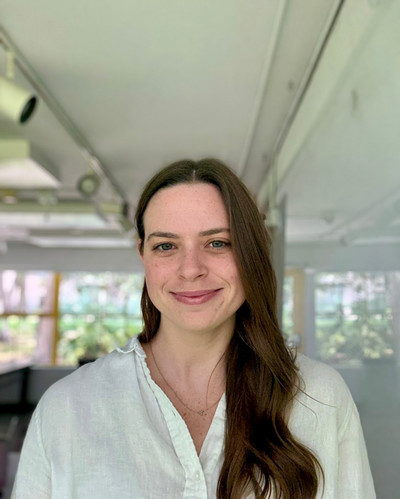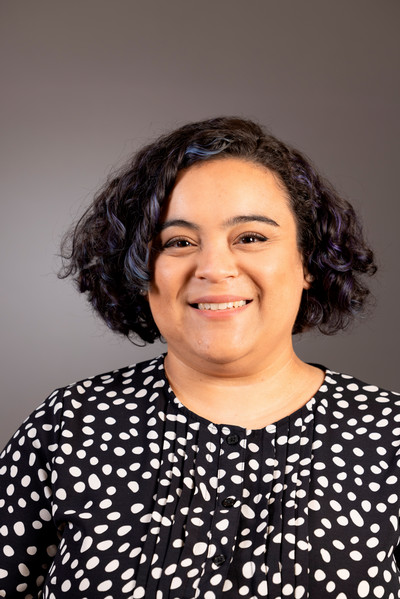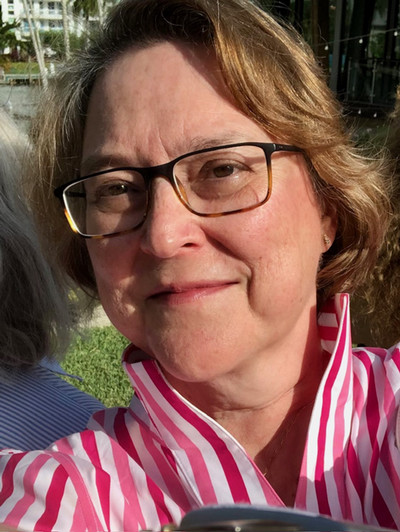SPRING 2026
MEETING 1 / Tuesday, Feb 10 / 1-2pm
Faculty Exploratory Room, Richter Library 3rd Floor
1300 Memorial Dr
Miami, FL 33146
MEETING 2 / Tuesday, March 17 / 1-2pm
Center for the Humanities conference Room
Otto G. Richter Library, Suite 100
1300 Memorial Drive
Coral Gables, FL 33146
MEETING 3 / Tuesday, April 14 / 1-2pm
Center for the Humanities conference Room
|

CO-CONVENER, FALL 2025
Micaela Donabella, Ph.D. Candidate in English and Creative Writing
Micaela Donabella (she/her/hers) focuses her research around the intersections of disability and technology, gender, and labor in twenty-first century literary and online cultures. Micaela is the Chair of UM’s English Graduate Organization and a 2025-2026 Dissertation Fellow with The Graduate School. Her article, “Wearable Tech and the Casualization of Biometric Surveillance in Wellness Culture,” is forthcoming in Pulse: The Journal of Science and Culture.

CO-CONVENER, FALL 2025
Vanessa Rodrigues Barcelos, PhD candidate in English
Vanessa Rodrigues Barcelos specializes in early modern literature, gender studies, and the history of witchcraft. Her dissertation, “Race and Gender in Representations of Witches and Fairies in Early Modern English Literature”, examines how early modern demonological discourses overlapped with and was informed by premodern race notions. She is the 2025–26 Dean’s Dissertation Fellow at UM’s School of Arts and Sciences at the University of Miami. Her forthcoming article, “Talking Back: Women Join the Theological Debate about Witchcraft in 17th-Century England” on women’s theological interventions in witchcraft debates will appear in the next special issue of the journal Magic, Ritual, and Witchcraft.

CO-CONVENER, FALL 2025
Gema Pérez-Sánchez, Associate Professor of Spanish, Michelle Bowman Underwood Department of Modern Languages & Literatures
Gema Pérez Sánchez and Brenna Munro of the English Department cofounded in Fall 2006 the Queer Studies IRG (back when it was called the Queer Studies Faculty and Graduate Students’ Reading Group) and has continued to co-convene the group at regular intervals. Her research focuses on contemporary Spanish peninsular culture; gender and sexuality studies with an emphasis on transnational LGBTQ+ activism; anti-racism; the culture of Afro-descendant Spaniards; films and literature on migration to Spain; and queer theory. She is the author of Queer Transitions in Contemporary Spanish Culture: From Franco to la movida (SUNY Press 2007) and guest co-editor with Munro of S&F Online’s 2017 special issue on “Thinking Queer Activism Transnationally.” She is working on her next book, “Transnational Queer Affects and Activism: Literary and Visual Public Interventions in Spanish Culture (1970s-2000s),” in which she studies the intersection of epistolary, literary, visual, and activist discourses and transnational lesbian, gay, bisexual, trans* and queer mobilizations in contemporary Spain. Gema holds a Ph.D. in Romance Studies from Cornell University (1998), an M.A. in English Literature from Bucknell University (1992), and a Título Superior de Flauta Travesera (BA in Music Performance) from the Real Conservatorio Superior de Música de Madrid (1990).
|







